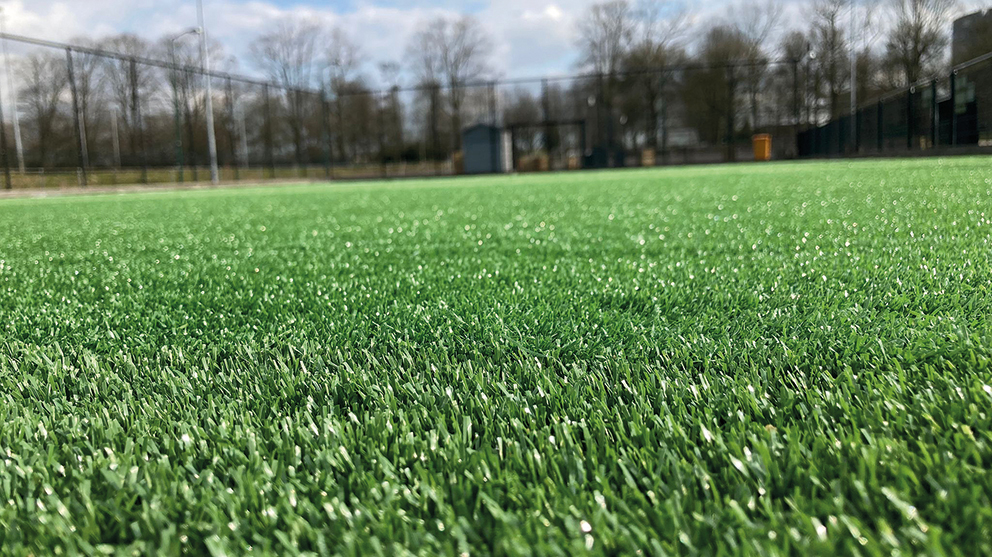Developed over the last two years, the polyester artificial grass top layer can be recycled multiple times into new high end artificial turf.

GRASS2GRASS from RSI Sports is produced from polyester, a raw material that, for a long time, was deemed too expensive for the production of artificial turf.
“Where polypropylene and polyethylene are degenerative materials, polyester has excellent memory characteristics. This allows it to retain its shape, allowing us to recycle reclaimed Grass2Grass carpets to new artificial turf carpets multiple times,” explains RSI SPORTS managing partner, Arnoud Fiolet.
The polyester is also used for producing the backing as well as the glue that is used for the installation of the carpet.
“Once lifted and processed through a mechanical recycling unit, all reclaimed materials can be used for producing new artificial turf.”
Inspired by developments in other industries, RSI concluded that the best way forward for artificial turf and the artificial turf industry was to embrace a disruptive product/strategy.
“We felt that, by continuing down the same path, we wouldn’t find a solution to the existing problem of end-of-life turf. These carpets can only be down-cycled, hence the industry remains heavily reliant on virgin raw material.”
Using polyester as raw material enables the company to meet the highest step on the Lansink Ladder, a tool used in the evaluation of processes that protect the environment alongside resource and energy consumption from most favourable to least favourable actions.
After 2.5 years of research, testing and re-engineering, RSI has developed a turf system for various applications that will meet international industry standards.
A sample hockey pitch tested by ISA KIWA in accordance with Dutch market standards has shown that Grass2Grass meets all pitch related performance criteria. The quality and performance criteria pursued by the Dutch hockey association (KNHB) are amongst the highest and most stringent in the world.
The G2G technology has been patented (patent pending) and RSI is committed to develop the technology further to be the leading standard in material use, fulfilling the EU 2030 ambition to achieve at least 50 per cent of its sustainability targets set for 2050 by 2030.
“Ultimately, Grass2Grass will prevent the world continuing to end up with heaps of discarded artificial turf that has no use any longer or which is not financially viable to recycle,” says Fiolet.
“Here in the Netherlands, we are blessed with having two companies that are capable of recycling discarded artificial turf, but for many countries, that will not be the case.”
The reality for these countries will be that artificial turf, at its best, is recycled to other, lower quality products, he says.
“With some luck, companies will manage to convert the old carpet to park benches, umbrella stands or similar low-end products. There is certainly a demand for that, but, ultimately, this means that artificial turf is down-cycled to a lesser quality product.”
Test pitches are currently being installed in a range of different countries to understand the behaviour of the turf in different climate zones.
Grass2Grass has been awarded the Dutch Innovation Award from the Dutch government.